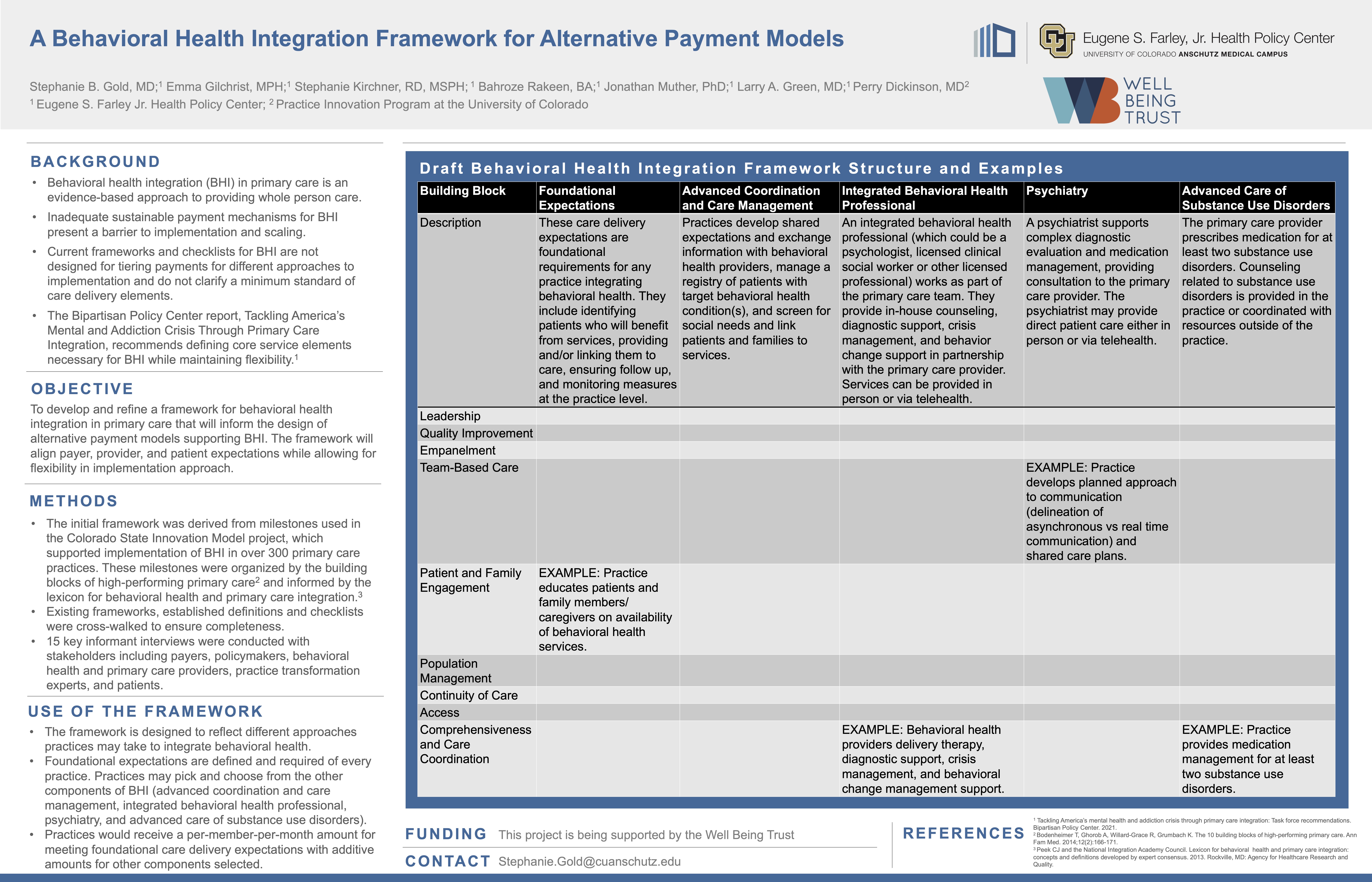PRP001: A Behavioral Health Integration Framework for Alternative Payment Models
Stephanie Gold, MD; Emma Gilchrist, MPH
Abstract
Context: Implementation of behavioral health integration (BHI) in a practice varies depending on needs of the patient population, practice resources, and local workforce availability. Given this variation, there is no single model that will be the right fit for all practices in how they approach integrating care. Furthermore, practices often implement integration in a hybrid approach that blends elements of different models. Payers have expressed a need to understand what additional resources for BHI are used for and to have demonstrated accountability from practices. Objective: To develop a framework for BHI in primary care that would inform the design of alternative payment models supporting BHI, align payer expectations, decrease administrative burden on practices, and achieve a level of standardization of BHI care delivery requirements that enhance patient care while still allowing for flexibility. Study design: (1) Initial development: Milestones used for the Colorado State Innovation Model, based in the building blocks of high-performing primary care, were examined to select items specific to BHI that could be overlaid on more general milestones for advancing primary care. These items were divided into foundational and additional modular components of integrated care: integrated behavioral health professionals, consultation with psychiatry, care management, and coordination with outside behavioral health. Other BHI measurement frameworks were reviewed to ensure completeness. The adapted milestones were then reviewed by experts in BHI and practice transformation in iterative cycles. (2) Refinement of the framework: Key informant interviews will be held to obtain feedback from relevant stakeholders (payers, policymakers, behavioral health and primary care providers, practice transformation experts, and patient representatives) which will be used to optimize the framework for end-users. Dataset: Other frameworks and tools reviewed: Colorado State Innovation Model milestones, NCQA BH distinction, Continuum-based framework for integrated care, Integrated Practice Assessment Tool, Practice Integration Profile. Population studied: Planned 6-12 key informant interviews from the stakeholder groups listed above. Anticipated results: Developed and vetted BHI framework tool outlining care delivery expectations for varied implementation approaches of BHI, designed to be used by payers and policymakers in developing alternative payment strategies to support BHI.

Jack Westfall
jwestfall@aafp.org 11/20/2021Thanks for your terrific work on this research. Hope we can connect.